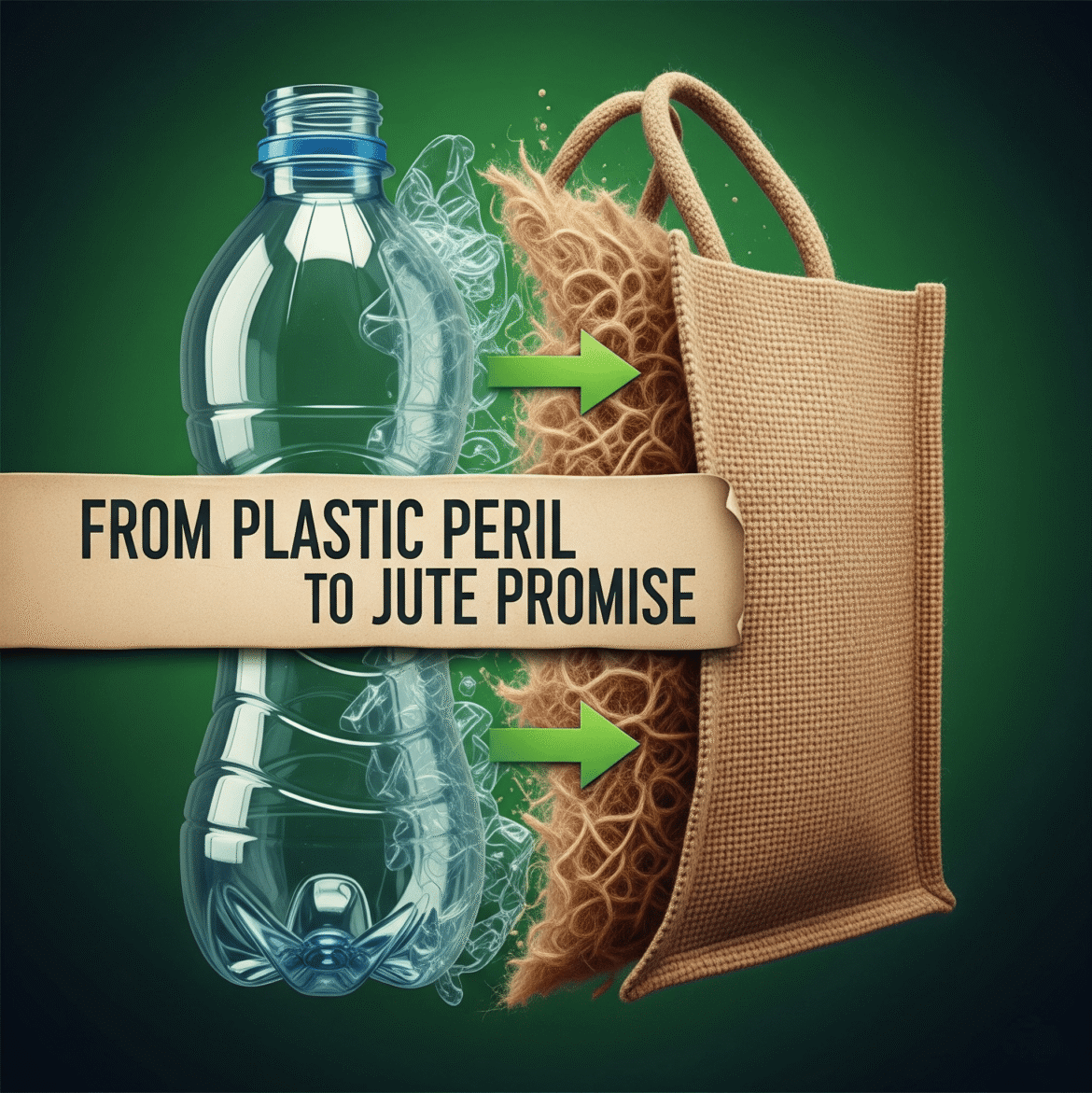Bangladesh is boosting its efforts to combat single-use plastics by adopting solutions made from jute. On June 21, 2025, a feature article outlined how the country is moving from a plastic-heavy past to a jute-powered future. Every day, Dhaka alone produces over 646 tonnes of plastic waste, yet less than 40% gets recycled. The rest chokes streets, blocks drains, and ends up in rivers and the ocean. Tiny plastic particles have even entered the human food chain. At the same time, jute, known as the “golden fiber,” provides an eco-friendly and recyclable option. It decomposes within six months, enriches soil, preserves water, and emits no harmful chemicals. Economically, the jute sector supports around 25 million livelihoods—from cultivation to processing to export. In 2018, the value of the jute market around the world was estimated at US $2.7 billion. Major industries like automotive—featuring brands such as BMW, Toyota, and Volvo—are already adopting jute in interiors. Bangladesh supplies about 100,000 tonnes of jute annually to this sector alone. Scientists are innovating new jute-based products beyond traditional sacks. Mubarak Ahmad Khan’s “Sonali Bag,” made from jute cellulose, is a biodegradable biopolymer that decomposes in months. Other innovations include jute-reinforced boards, nanofibers, and industrial composites. For a successful shift, coordination is essential. The government is encouraged to enforce existing plastic bans more strictly, invest in jute R&D, and introduce tax breaks or incentives for jute startups. In 2002, Bangladesh prohibited the use of polythene bags; however, due to poor enforcement, the use of plastic increased once again. To revert this, the country could deepen public awareness campaigns, encourage collections and recycling systems, and integrate jute in digital marketplaces. Decentralizing jute processing and encouraging local mills can create rural jobs while cutting transport emissions. Meanwhile, expanding green entrepreneurship could unlock circular supply chains—turning jute into packaging, textiles, building materials, and even auto parts. Bangladesh is well-positioned. Rather than merely being a minor detail in the worldwide battle against plastic, it could lead the way in promoting sustainability through jute. By reimagining jute not just as a cultural heritage but as a strategic green resource, the country can build jobs, protect ecosystems, and boost exports. With honest enforcement, research-backed innovation, and business-friendly policies, jute can shine as Bangladesh’s solution to the plastic crisis.
From Plastic Peril to Jute Promise
47


